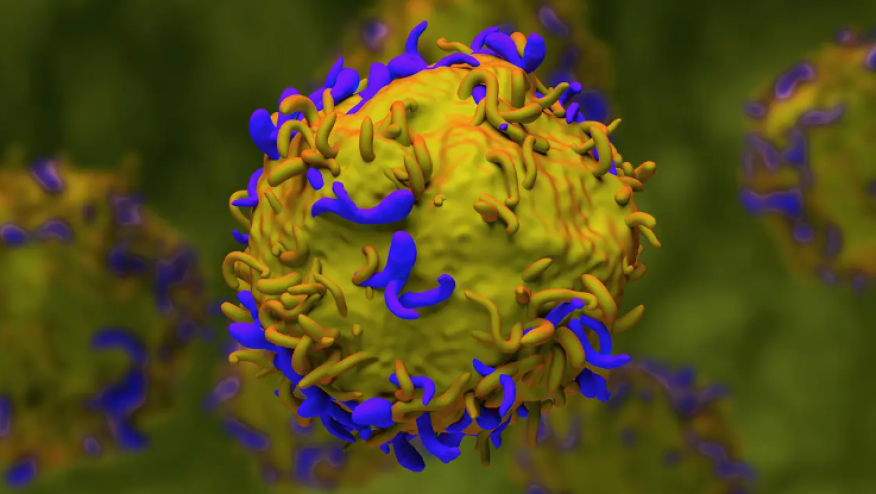CAR-T Product Shows Early Promise in Lupus Save

Key Takeaways
- CAR T-cell therapy was first developed as a lymphoma treatment but has recently been applied to autoimmune diseases such as lupus.
- This study examined a novel method that transforms patients' T cells in vivo, instead of harvesting them for transformation in a laboratory.
- Results in five lupus patients were encouraging after 3 months, but more patients and longer follow-up are needed.
Five patients with systemic lupus erythematosus (SLE) in China have been treated with a potentially groundbreaking form of chimeric antigen receptor (CAR) T-cell therapy, researchers reported, with encouraging results after 3 months.
Their approach differs from previous applications of CAR T-cell therapy in autoimmune diseases, in which patients' T cells are harvested and transformed ex vivo to destroy B cells and thereby "reset" the immune system. Instead, according to Zhu Chen, MD, of the First Affiliated Hospital of the University of Science and Technology of China in Hefei, and colleagues, patients are dosed with lipid nanoparticles carrying messenger RNA nucleotides that do the transformation in vivo.
Chen's group reported short-term results for the five patients in a New England Journal of Medicine correspondence.
Notably, the team included Georg Schett, MD, of Friedrich-Alexander University in Erlangen, Germany, who has led the charge in applying CAR T-cell therapy to autoimmune disorders. This new approach is not just about convenience; it also spares patients from undergoing a conditioning regimen with harsh chemotherapy drugs.
All patients in the Chinese study still had active lupus despite multiple standard therapies, including telitacicept (a fusion protein blocking both BLyS and APRIL, which help drive lupus; it's not approved in the U.S.) in four patients, one of whom also received belimumab (Benlysta). Patients ranged in age from 31 to 46, and all were women.
Several dosing regimens were tested. The first patient received a single dose of 2 mg; the second got two doses, 2 days apart. The next three patients were given two or three 4-mg doses, each also 2 days apart.
Within hours of administration, Chen and colleagues said, patients' B-cell counts declined sharply with the lower dose, and fell to zero with 4 mg, with repopulation starting 7-10 days after the final doses. Biomarkers of SLE including anti-nucleosome and anti-double-stranded DNA antibodies also decreased markedly, the researchers said.
Clinical results were spottier. Chen and colleagues tracked SLE Disease Activity Index (SLEDAI) values from pretreatment baseline through 3 months. The first patient, who got just one 2-mg dose, showed only a 2-point decrease from an initial score of 8. Response was also minimal in patient 5, who received three 4-mg doses.
The other three patients did better. Patient 4, whose baseline SLEDAI score of 22 was the highest of the cohort, saw a decrease down to just 2. Patients 2 and 3 also improved considerably.
One concern with the in vivo transformation was off-target uptake and expression of the CAR protein, but this was uncommon, the researchers said, occurring at a rate of less than 10%. The chief adverse effect was cytokine release syndrome, which is also seen with conventional CAR T-cell therapy. It developed in all patients but only at grade 1 in four and grade 2 in the fifth. Three cases were treated with the interleukin-6 inhibitor tocilizumab (Actemra) because this cytokine was prominent. Lymphocytes decreased but the researchers were less concerned because it reflected the treatment's efficacy.
This being a first-in-humans trial with limited follow-up, Chen and colleagues wrote that "more data are necessary to determine the durability and the appropriate dose and treatment schedule ... to achieve long-term remission."
Source Reference: Wang Q, et al "In vivo CD19 CAR T-cell therapy for refractory systemic lupus erythematosus" N Engl J Med 2025; DOI: 10.1056/NEJMc2509522.









If you are a health practitioner, you may Login/Register to comment.
Due to the nature of these comment forums, only health practitioners are allowed to comment at this time.